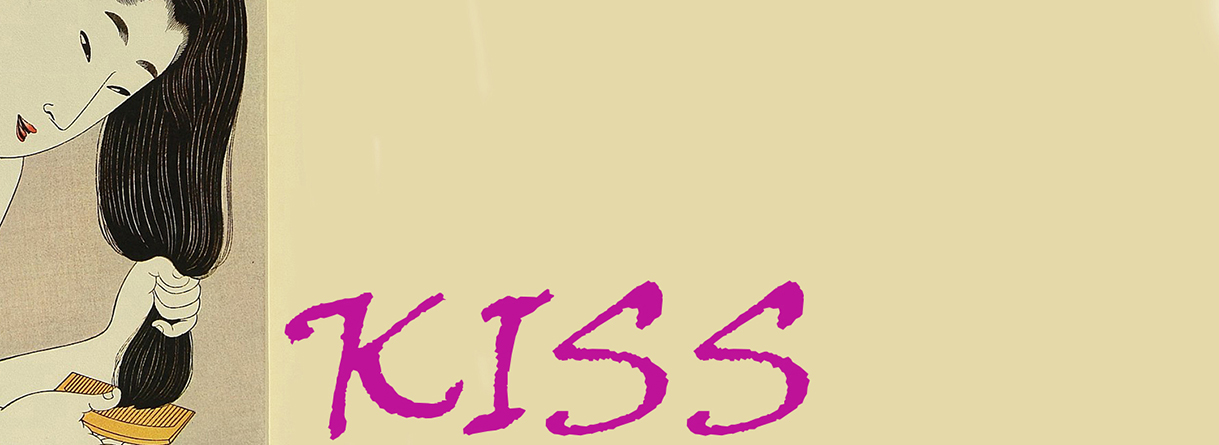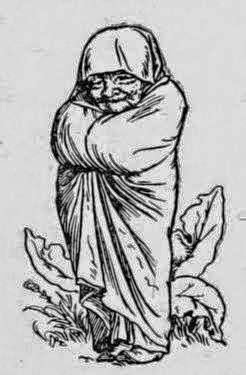The poet Paul Muldoon … 'I'm horrified at how many lyrics I can still remember from songs from the 50s.' Photograph: Murdo Macleod for the Guardian
Collecting lyrics from the more literary end of pop songwriting into a book is nothing new. In recent years Leonard Cohen, Bob Dylan, Jarvis Cocker, Ian Dury and Paul Simon are just some of those whose words have been stripped of the music and presented essentially as poetry, taking their chances with exposure to the unforgiving white page. Their efforts are joined this month by another book of lyrics, The Word on the Street, by Paul Muldoon. As a Pulitzer prize winning poet, former Oxford professor of poetry and current New Yorker poetry editor, Muldoon is no stranger to the challenges of making words stand alone on the page. But for all his successes, he is also aware of the pitfalls.
"You never really know how people are going to respond to something like this," he says. "The tradition of reading lyrics on a page is a little bit iffy. Some of us of a certain age will remember lyrics on album sleeves, which is now not such a feature as it used to be. But in a sense they educated us in how to read them. One took them somewhat seriously, but maybe not completely seriously. I'm a bit conflicted myself." He says there have already been a couple of American reviews saying the book is "not quite up to par. You can see how people might be slightly disconcerted – these things are not quite poems, and yet they are sort of like poems."
Whatever people's responses to the project, no one can say it comes as a surprise. Muldoon has had an obsessive interest in pop and rock music throughout his life, has played in bands, written libretti for opera and collaborated with musicians. In 2006 he published a collection of lyrics, General Admission (Gallery Press), that included "My Ride's Here", a song co-written with his late friend, the musician Warren Zevon, that was later covered by Bruce Springsteen. Last year he published Songs and Sonnets (Enitharmon), in which he explicitly explored the relationship between verse and song, and now The Word on the Street. These lyrics have been written for Muldoon's band, the Wayside Shrines, based in Princeton where he teaches, and the songs are available on the band's website.
"Songs and poems have always existed together for me," he explains. "At school we studied English poetry, French and Latin poetry, as well as Irish, that is Gaelic, poetry, which we were often taught as songs. Yeats wrote a fantastic number of poems with the word song in the title, and used, as I myself have been using, the refrain. I've written quite a few poems in the last few years that have been refrain driven, and so this book is not so strange a development."
Muldoon was born in 1951 in rural County Armagh in Northern Ireland, and recalls a childhood in which there was still a tradition of "the knock on the door and a neighbour dropping by to sit by the fire and maybe being persuaded to give you a bar or two of a song or recite a poem. Recitation was a big thing and a living tradition. People had been forced to learn poems at school, and so had by heart bits of Shakespeare and Byron and Wordsworth that they would call on quite normally and naturally. These guys were farmers for the most part, but they could also recite a bit of a Robert Service poem about life in the Yukon or the Klondike, popular stuff that lived in a sort of netherworld between poetry and song."
As a teenager Eliot was Muldoon's first poetic catalyst, "but that was also, in a way, tied up with song," he says. "One of things people forget about Eliot is that the amount of popular music in The Waste Land is phenomenal. He clearly knew an awful lot about music hall and had a great ear. I'm sure that is one of the reasons he is so memorable. A lot of the stuff is quite dense, but we remember it because he had a good ear for a catchy line, something you must also have in the song business."
Muldoon eventually abandoned "Eliotic parodies" after encountering Seamus Heaney's early work and coming to the realisation that he could write about the world around him. And so he emerged as the great prodigy of Irish poetry who, as a teenager, sent some poems to Heaney asking what was wrong with them. Heaney, so the legend has it, replied in one word: "Nothing". Muldoon has said that even he is sketchy as to the details of the story, but acknowledges its essential truthfulness in that Heaney, who taught him at Queen's University, Belfast, was indeed a huge supporter and recommended him to fellow Ulsterman and Faber poetry editor Charles Monteith, resulting in Muldoon's first book, New Weather, being published when he was still a student in 1973.
After graduating Muldoon worked as a BBC radio and television producer in Belfast before teaching at Cambridge and the University of East Anglia. His 1977 collection, Mules, signalled his first explicit engagement with the Northern Irish Troubles, it was followed by Why Brownlee Left(1980) and Quoof (1983). In 1987 he left to teach in America, where he published The Annals of Chile (1994), featuring the acclaimed elegy for a former lover, "Incantata". His 2002 collection, Moy Sand and Gravel,won the Pulitzer prize. As an academic, Muldoon was Professor of Poetry at Oxford between 1999 and 2004, but his home remains in America, where he is married and has two children aged 13 and 20. Since 1990 he has taught at Princeton, from where The Word on the Street references the details of New Jersey life and lore.
So is he writing out of the great tradition of blue-collar music from the garden state? "I like New Jersey and love the tradition of it in song. Obviously Bruce Springsteen is a huge part of that. Maybe it's a small joke that we're a Jersey band, but it's a large collective really, and while there are three or four Princetonians, many of us are not." Muldoon plays guitar in the Wayside Shrines but says "I have a few chords, and that's about it. I had piano lessons as a child but very little of it stuck. Yet I loved the music I heard on the radio and am horrified at how many lyrics I can still remember from songs from the 50s. So I find myself simultaneously, and paradoxically, steeped in music, yet I know almost nothing about it."
As a big fan of Irish traditional music, his first instrument was actually a banjo. He speaks admiringly of Luke Kelly of the Dubliners and his version of the Patrick Kavanagh poem "On Raglan Road". "It's one of Kavanagh's best-known pieces, and I was always interested in the fact that he could pull that off in addition to all the other things he could do. Folk and rock lived alongside each other for me, so I also tried to play T Rex songs on the banjo, but that didn't really work."
On the classic divide between 60s music fans, Muldoon came down on the side of the Stones, "but I still go to see Paul McCartney every chance I get and he is still a phenomenal performer. Just before last Christmas, in a 10-day period, I saw the Stones, the Who, Dylan and Neil Young. They would all be getting their discounts from the grocery store and they were all fabulous. It is hilarious to see how well so many of these guys have weathered. But I'm also a fan of songwriters of earlier eras. Not just the Tin Pan Alley gang, but Cole Porter, Noël Coward, even Gilbert and Sullivan. They were very good at what they did. I'm just as interested in Gilbert and Sullivan as I am in Wagner. Maybe more so."
He says one of the practical reasons he began writing lyrics was that "it might be a way to avoid writing a poem every time some bright idea flew into my head, because most of the time what seem to be bright ideas are not that bright at all. And at the risk of sounding hierarchical, I think there are things you can get away with in a song. The pressure per square inch is a little lower, and, frankly, it has the capacity to deal in what might be truism or cliché."
His favourite title from The Word on the Street is "I Don't Love You Anymore". "I think all songs should be called 'I Don't Love You Anymore'. It allows you to then just get on with it. There's even one called 'Days of Yore'. I mean, you just could not call a poem that, let alone, on a good day, maybe even get away with it." The poem name-checks another notably inventive writer, Ian Dury: "We also discuss how a kid with polio / And a half-decent portfolio / Could get into the Royal College of Art / In those far off days of yore." "I've just read a book of his lyrics edited by his daughter. The best of them stand up extremely well on the page. He was a great writer – a genius really."
The lyrics are full of Muldoon's trademark wit, virtuosic verbal dexterity and tricksiness. "Like most writers, though I know some people might doubt this is true of me, I'm as interested in clarity and simplicity as the next person. I'm not setting out to be what people sometimes think I am. I am setting out to be clear, and songs can be more direct and immediate."
The subject matter ranges from spoilers for Hollywood films to American foreign policy, the state of the economy as well as personal relations. "It's not that poetry can't say things. Of course it can. And it's not that I haven't written poems about American politics, not to mention poems about Irish politics. But there is something about the way music can deliver you to an emotional place. The combination of music and words is a very powerful force in our lives. It's not that I'm going over to that form of writing forever. I'm still very interested in what may be done with words alone, but I like to jazz things up a bit, almost literally sometimes."
His next music project is a collaboration with the composer Mark-Anthony Turnage and the London Symphony Orchestra, to be performed during the Derry-Londonderry City of Culture festival this summer, commemorating the 400th anniversary of the building of the city walls. He says he also has a lot more song lyrics, "probably another book's worth, but whether I'll publish them I don't know. I certainly don't think I'll publish it next." Instead he is currently "attempting to write a few poems" that he suspects will reflect his lyric writing "for better or worse. When I first wrote librettos, that influenced the way I wrote poems. Songwriters have very particular skills. The great ones are great storytellers, and I'm interested in what I might learn from this and be able to bring back into the poetry business. So it has been fun for me and one hopes that it will be fun for other people too. I think I'll be back to poetry next, but I can't help thinking that I might just continue to do both."















